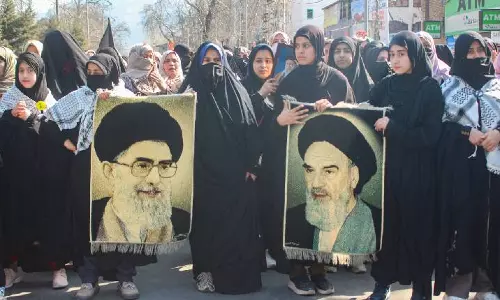
Prison manuals' caste-based discrimination 'disturbing': SC
text_fieldsNew Delhi: The Supreme Court said on Wednesday that the provisions in state prison manuals that encourage caste discrimination are “very disturbing”, Bar and Bench reported.
A Chief Justice of India DY Chandrachud-led bench observed so while reserving its judgement on a plea filed by journalist Sukanya Santha.
Santha’s written submission to the court read that there were rampant practices of caste division of labour, segregation and discrimination against the denotified tribes inside Indian prisons. The prison manuals refer to the sections of criminal or wandering or nomadic tribes, and the manuals discriminate against them.
Her petition said that prisoners included in this group were classified as habitual offenders and were assigned to work based on their caste. The petition demanded that such discriminatory provisions found in prison manuals should be repealed. According to the petition, the said discriminatory provisions are found in the prison manuals of Uttar Pradesh, West Bengal, Madhya Pradesh, Andhra Pradesh, Telangana, Punjab, Odisha, Jharkhand, Kerala, Tamil Nadu and Maharashtra.
The petitioner also told the court that caste-based discrimination in prisons extends to the segregation of barracks.
Further, the petitioner told the court that caste discrimination in prisons extends to the segregation of barracks. She cited the Uttar Pradesh Prison Manual, 1941, to establish that cleaning, conservancy and sweeping work assigned to prisoners on the basis of their caste.
Following the Centre issuing the Model Prison Manual in 2016, amendments were made in 2022 to bring prison manuals to its line. The 2016 issuance abolished the provision of allotting works on the basis of caste.
However, I notified the petitioner that the Model Prison Manual is silent about the caste-based division of labour inside prisons except cooking. The Supreme Court noted on Wednesday that instructions by states prohibiting such practices are not always followed.























